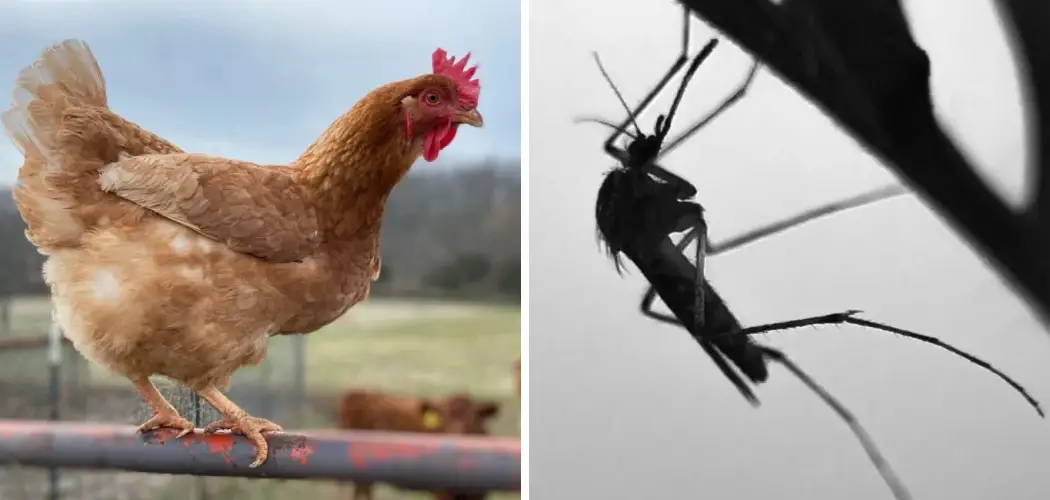If you own chickens, you know the struggles of keeping gnats away from your flock. These tiny, flying insects can be a nuisance to chickens and their owners.
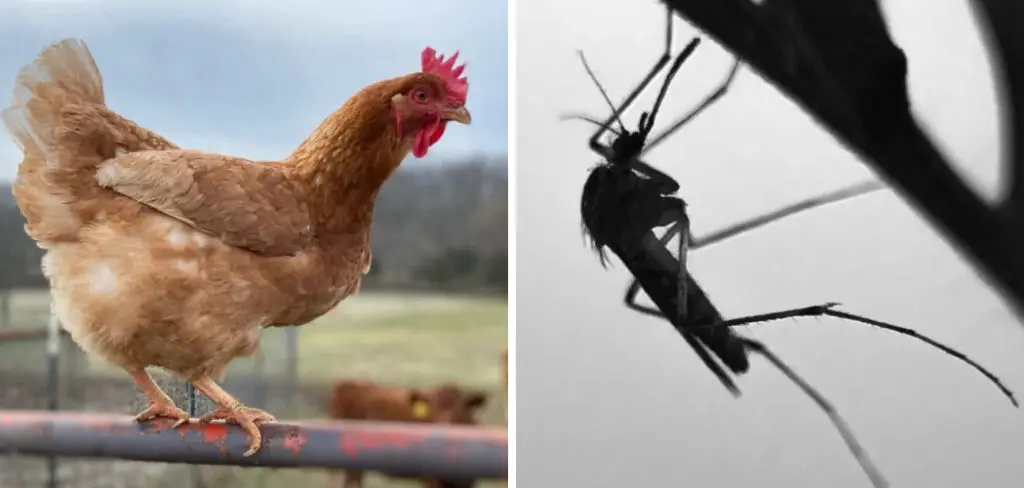
Gnats, though tiny, can pose significant problems for backyard chicken keepers, especially during warmer months. These pests not only irritate and stress your chickens but can also lead to health issues if not managed properly. Keeping gnats away from chickens is crucial for maintaining a healthy and happy flock.
In this guide on how to keep gnats away from chickens, we’ll explore effective strategies to minimize gnat populations around your chickens, from natural remedies to preventive practices. Whether you’re a seasoned chicken keeper or new to the hobby, these tips will help you create a more comfortable environment for your poultry, ensuring they are less bothered by these pesky insects.
What are the Benefits of Keeping Gnats Away From Chickens?
Before diving into the specific methods to keep gnats at bay, let’s first understand why it is essential. Here are some major benefits of keeping gnats away from chickens:
- Reduced Stress: Like any living creature, constant pest irritation can cause stress in chickens, lowering their overall health and productivity.
- Less Risk of Diseases: Gnats are known to carry diseases that can be transmitted to chickens, leading to illness and even death.
- Improved Egg Production: A stressed or sick chicken is less likely to lay eggs regularly. Keeping gnats away can help ensure your chickens are happy and healthy, resulting in consistent egg production.
- Better Quality Eggs and Meat: Pests like gnats can contaminate chicken feed, water, and living spaces, ultimately affecting the quality of eggs and meat produced.
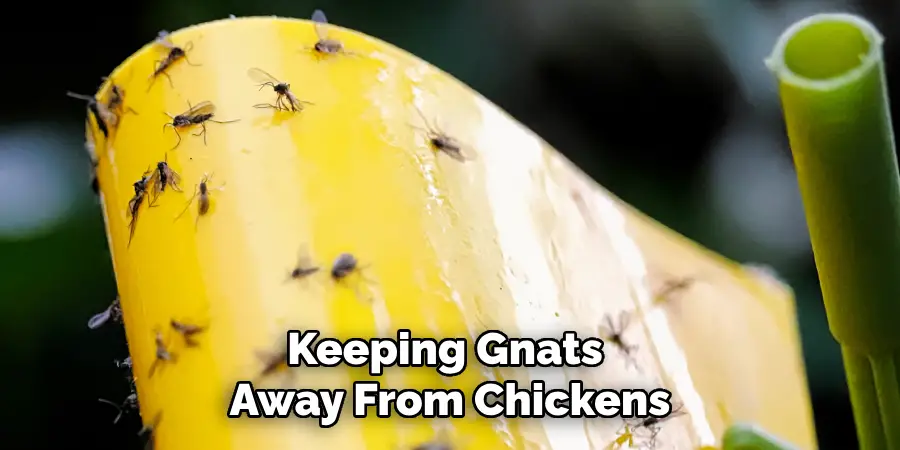
Now that we understand why keeping gnats away from chickens is crucial, let’s explore some effective methods to achieve this goal.
What Will You Need?
Before we move on to the methods, here are some things you’ll need:
- Natural Remedies: such as essential oils, herbs, and plants that can repel gnats.
- Physical Barriers: items like screens and netting to physically prevent gnats from entering your chicken coop or run.
- Cleaning Supplies: to maintain a clean and hygienic living space for your chickens.
- Preventive Practices: simple routines that can help reduce gnat populations around your chickens.
Once you have these items, you can start implementing the following methods.
10 Easy Steps on How to Keep Gnats Away From Chickens
Step 1. Use Natural Gnat Repellents:
Natural repellents are one of the most effective ways to keep gnats away from chickens. Gnats are known to dislike strong smells, making essential oils and herbs highly effective in repelling them. Some popular options include:
- Lavender: Lavender’s strong scent is a natural gnat deterrent. You can plant lavender around your chicken coop or sprinkle dried lavender in their living space.
- Peppermint, Citronella, and Eucalyptus Oil: These essential oils have strong scents that can repel gnats. Dilute them with water and spray them around your coop or on your chickens to keep gnats away.
- Rosemary and Basil: Both herbs have a pungent smell that can keep gnats at bay. Plant them around your coop, or place dried leaves in the coop corners.
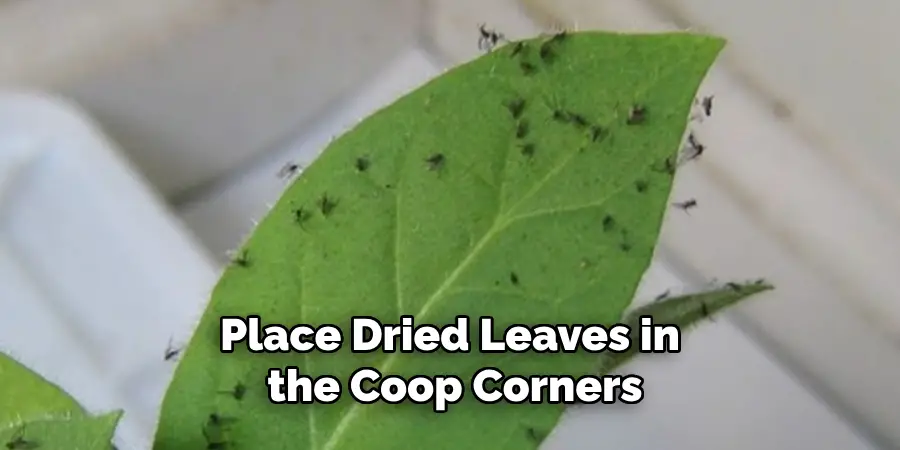
Step 2. Maintain a Clean Living Space:
Maintaining a clean living space is crucial for keeping gnats and other pests away from your chickens. A dirty coop can attract gnats, flies, and other pests, making your poultry an easy target. Here’s what you need to focus on:
- Regularly Clean the Coop: Remove droppings, uneaten feed, and wet bedding daily to prevent gnat attraction. A thorough clean-up should be done weekly to ensure no gnat-attracting residue is left behind.
- Ensure Proper Ventilation: Good airflow helps to keep the coop dry and less inviting to gnats. Ensure your chicken coop has enough ventilation to prevent moisture build-up, attracting gnats.
- Dry Bedding: Always keep the bedding dry. Wet bedding attracts gnats and breeds bacteria, leading to diseases. Replace wet or soiled bedding immediately with dry, fresh materials.
- Manage Waste Properly: Dispose of chicken waste and spoiled food far from the coop. Composting should be done in a closed bin to avoid attracting gnats and other pests to the site.
By implementing these cleanliness and hygiene practices, you can significantly reduce the presence of gnats around your chickens, creating a healthier environment for your flock.
Step 3. Install Physical Barriers:
Physical barriers can effectively prevent gnats from entering chicken coops or runs. Using materials such as fine mesh or netting can block gnats and other small pests without obstructing airflow, which is crucial for maintaining good coop ventilation. Here are a few ways to utilize physical barriers:
- Fine Mesh Screens: Install fine mesh screens on windows, doors, and any other openings of the coop. This will allow air and light to enter while keeping gnats and other insects out.
- Netting Around the Run: If your chickens have an outdoor run, consider covering it with bird netting or a similar material. This provides a barrier against gnats while allowing your chickens to enjoy the outdoors safely.
- Seal Gaps and Cracks: Regularly inspect the coop for any gaps, cracks, or holes that may allow gnats to enter. Use caulk or weather stripping to seal these areas and maintain a gnat-free environment.
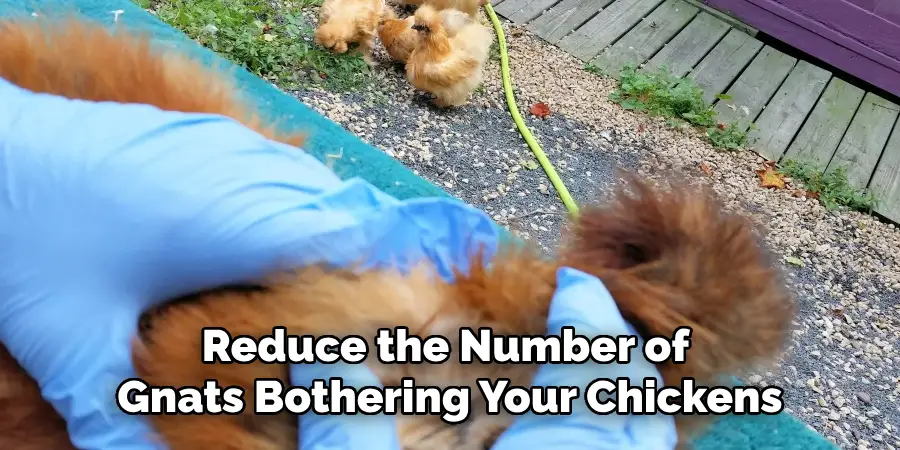
By incorporating these physical barriers into your chicken coop and run, you can significantly reduce the number of gnats bothering your chickens, ensuring they remain healthy and stress-free.
Step 4. Implement Water Management Strategies:
Water management plays a pivotal role in gnat control around chicken coops. Since gnats are attracted to moisture and standing water, minimizing these conditions as much as possible is crucial. Here are some strategies to manage water effectively:
- Eliminate Standing Water: Check around the coop and run area for any containers, depressions, or areas where water gathers and stands. Fill in these areas or ensure they drain properly to discourage gnat breeding.
- Maintain Dry Drinking Areas: Ensure that the area around your chickens’ waterers remains dry. Use water systems designed to minimize spillage, such as nipple drinkers or water cups, which can significantly reduce water accumulation that attracts gnats.
- Proper Drainage: Ensure that the coop and run have proper drainage to prevent water from pooling. If the area is prone to becoming muddy or waterlogged, consider adding gravel or sand to improve drainage and keep the ground dry.
- Frequent Water Changes: Change the water in your chicken’s drinkers regularly to prevent organic matter from accumulating, which can attract gnats and other pests.
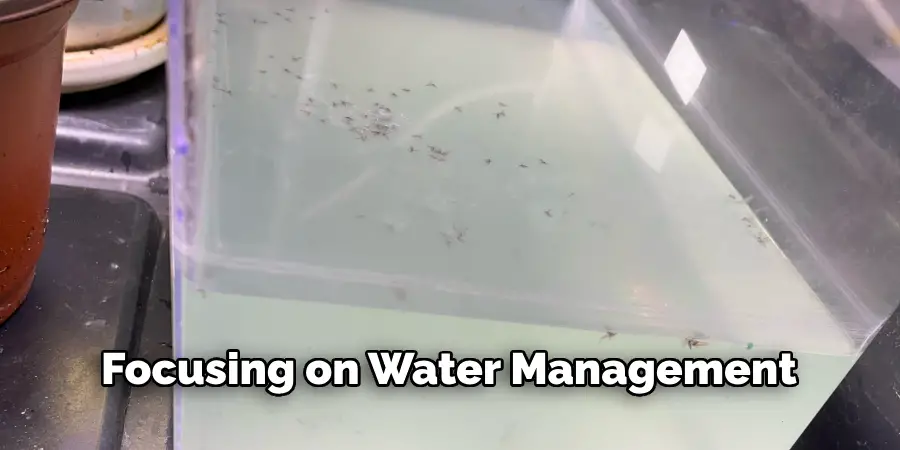
By focusing on water management within and around your chicken coop, you can create a less inviting environment for gnats, contributing significantly to the overall health and comfort of your poultry.
Step 5. Employ Gnat Traps:
Gnat traps are an effective and non-toxic way to reduce the gnat population around your chicken coop. These traps lure gnats away from the chickens, capturing them before they can bother or harm your flock. There are several types of gnat traps you can employ, including:
- DIY Vinegar Traps: A simple mixture of apple cider vinegar, water, and a few drops of dish soap can create a potent gnat trap. Gnats are attracted to the scent of vinegar but get trapped by the soap. Place these traps around the coop and run, especially in areas where gnats are most prevalent.
- Sticky Fly Ribbons: These can be hung around the coop and in areas where gnats tend to gather. The gnats are attracted to the traps and then get stuck to the adhesive.
- UV Light Traps: These traps use ultraviolet light to attract gnats and other insects. Once the gnats get too close, they are either zapped by an electric grid or trapped, depending on the trap’s design.
By strategically placing these traps around your chicken coop, you can significantly reduce the gnat population, making the environment more pleasant for both you and your chickens.
Step 6. Use Natural Predators:
Introducing natural predators into your environment can be a sustainable and effective method for controlling gnat populations around your chicken coop. Certain bird species, such as purple martins, swallows, and bats, are voracious eaters of gnats and other pesky insects. Here’s how to attract these natural allies:
- Bird Houses: Install birdhouses or nesting boxes to attract insect-eating birds. Place them around the perimeter of your property, near the chicken coop, but not too close to avoid stressing your chickens.
- Bat Boxes: Bats can consume thousands of insects, including gnats, every night. Installing bat boxes on trees or poles around your property can encourage their presence, significantly reducing gnat numbers.
- Promote Biodiversity: Encourage a diverse ecosystem within your garden or property. Plant various native plants to attract these beneficial predators and provide them with alternative food sources and nesting areas.
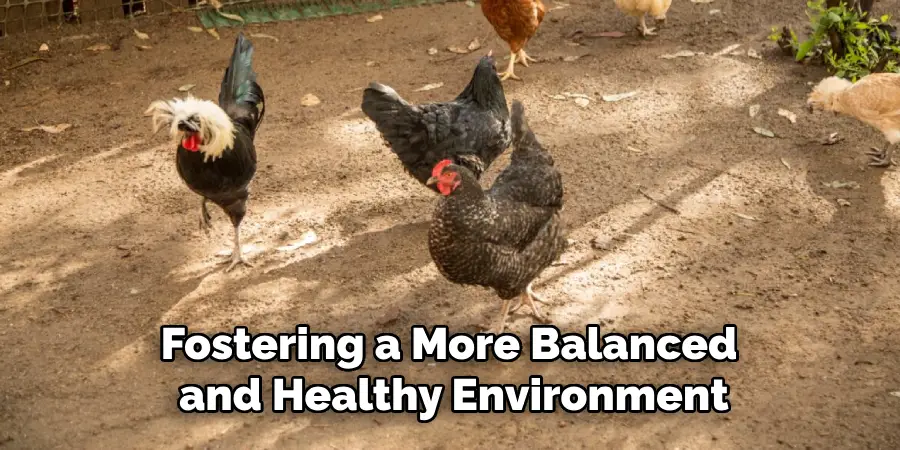
Leveraging these animals’ natural predation habits can lead to a marked decrease in gnat populations, fostering a more balanced and healthy environment for your chickens and your entire homestead.
Step 7. Regular Cleanup and Maintenance:
One of the most effective ways to keep gnats at bay is through regular cleanup and maintenance of the chicken coop and surrounding areas. Gnats and other pests are attracted to waste and decaying organic material, so it’s essential to keep these to a minimum. Here’s what you can do:
- Regularly Remove Waste: If possible, clean out chicken waste from the coop daily. A buildup of droppings not only attracts gnats but can also lead to health issues for your chickens.
- Compost Properly: If you compost chicken waste, ensure it’s done correctly in a sealed container or well away from the coop to prevent attracting gnats to the site.
- Clean Feeders and Waterers: Keep feeders and waterers clean and free from mold and algae, which can attract gnats and other pests.
- Dispose of Spoiled Food: Any moldy or spoiled food should be promptly removed and disposed of far from the coop to avoid attracting gnats.
- Check for and Remove Stagnant Water: Even small amounts of stagnant water can be breeding grounds for gnats. Regularly inspect and remove any potential sources around the coop and run.
By adhering to these maintenance practices, you can significantly reduce gnat attraction to the area, ensuring your chickens live in a cleaner, healthier, and more comfortable environment.
Step 8. Implement Essential Oils:
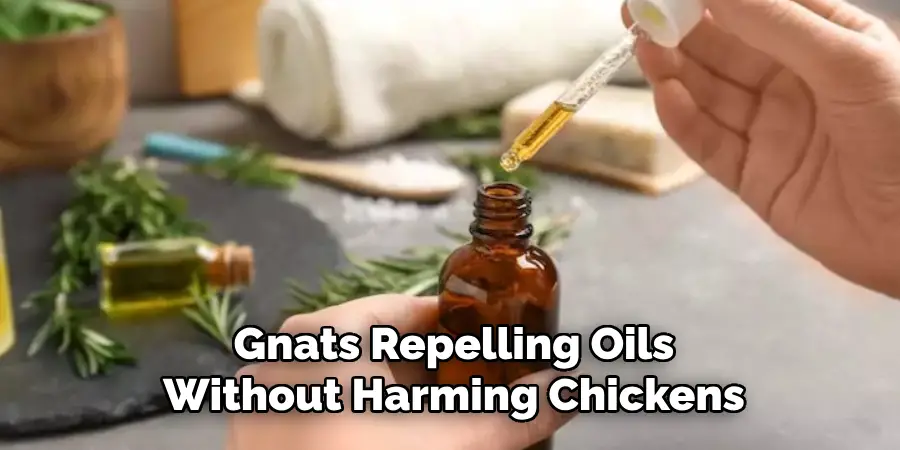
Alongside physical measures and natural predators, essential oils can serve as a gentle yet potent method to deter gnats from your chicken coop. Many essential oils are known for their insect-repelling properties without harming chickens. Here are a few ways to use them:
- Lavender, Peppermint, and Citronella Oils: These oils are particularly effective against gnats. Mix a few drops of these oils with water and spray around the coop, focusing on areas where gnats are most troublesome.
- Eucalyptus Oil: This oil repels gnats and can also disinfect the coop. Dilute it with water and use it to clean surfaces.
- Tea Tree Oil: Known for its antiseptic properties, it can help control gnat larvae. However, as it’s strong, it should be used sparingly and always diluted.
Applying these oils in strategic locations around your coop can significantly lessen the presence of gnats. Always ensure that any application of essential oils does not directly expose your chickens to large quantities of these oils, as sensitivity can vary.
Step 9. Monitor and Adjust Strategies:
Constant monitoring of gnat populations and the effectiveness of your control strategies is crucial. Even with the best preventive measures, conditions can change, leading to fluctuations in pest numbers. Here’s what you should focus on:
- Regularly Inspect the Coop: Check for signs of gnat resurgence, such as increased numbers of them around the coop or on the chickens.
- Evaluate the Effectiveness of Traps: Keep an eye on the traps you’ve set up to gauge their effectiveness and replace or relocate them as necessary.
- Adjust Natural Predators: If you notice a decrease in gnat-eating birds or bats, consider ways to make your property more attractive to them. This may involve adding more nesting sites or planting more native vegetation.
- Revise Cleaning Schedules: If gnats become a problem again, it may be time to increase the frequency of coop cleaning or waste removal.
Continual adjustment and persistence are key to maintaining a gnat-free environment for your poultry. Stay vigilant and be ready to modify your approach as needed to keep gnat populations under control.
Step 10. Seek Professional Advice:
If, after implementing the above strategies, you still find that gnat populations around your chicken coop are unmanageably high, it may be time to seek professional advice. Pest control experts can offer personalized solutions and treatments that are safe for use around chickens. Here’s how to proceed:
- Consult with a Local Extension Office: Agricultural extension services often provide free or low-cost advice to farmers and homesteaders. They can offer guidance specific to your local area and conditions.
- Hire a Professional Pest Control Service: If the situation requires, look for pest control services with experience in dealing with poultry farms or homestead settings. Ensure they use treatments that are non-toxic to chickens and environmentally friendly.
- Educational Resources: Utilize online forums, poultry enthusiast groups, and agricultural publications for advice and strategies from fellow chicken keepers who have faced similar issues.
Seeking expert guidance can provide you with new strategies or more powerful solutions, ensuring the wellness and comfort of your chickens and the productivity of your homestead.
By following these ten steps, you can effectively control and prevent gnat infestations in your chicken coop.
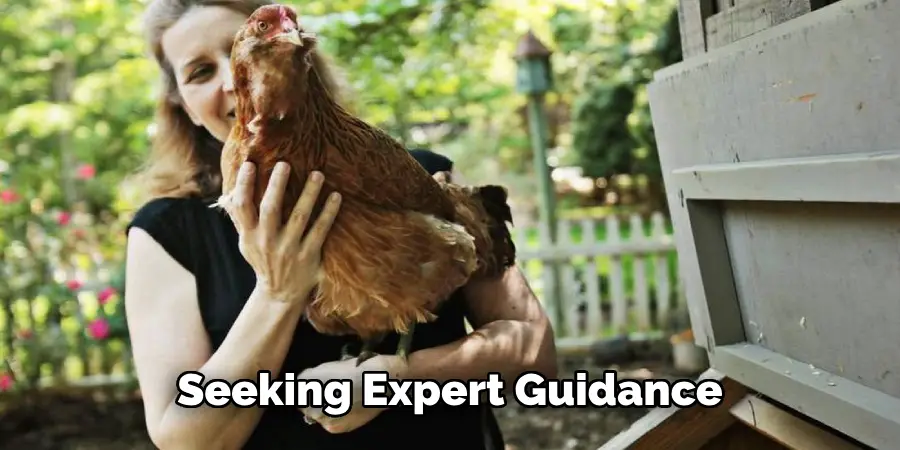
5 Things You Should Avoid
While implementing strategies to combat gnat infestations around your chickens, there are certain practices best avoided to ensure the health and comfort of your poultry. Here are five things you should avoid:
- Avoid Overuse of Chemical Insecticides: While it might be tempting to resort to chemical insecticides for quick results, excessive use can be harmful to chickens, other beneficial insects, and the environment. Always look for more natural alternatives first.
- Do Not Leave Feed Exposed: Leaving chicken feed exposed can attract gnats and other pests. Ensure that feed is stored properly and that any spilled feed is cleaned up promptly to avoid attracting unwanted insects.
- Avoid Stagnant Water Sources: Buckets, troughs, or any receptacle that can hold water should be regularly cleaned and emptied when not in use. Stagnant water is a breeding ground for gnats and should be eliminated from around the chicken coop.
- Do Not Ignore Proper Ventilation: Poorly ventilated coops can create damp conditions that are ideal for gnat populations to thrive. Ensure your chicken coop is well-ventilated to keep it dry and less attractive to pests.
- Avoid Neglecting Regular Coop Maintenance: It’s essential to maintain regular cleaning and maintenance routines. Neglecting coop cleanliness can lead to an accumulation of waste and debris, providing a perfect environment for gnats and other pests to flourish.
By avoiding these common pitfalls, you can help create a healthier and more comfortable environment for your chickens, free from the nuisance of gnats.
Conclusion
In conclusion, how to keep gnats away from chickens requires a multi-faceted approach that includes maintaining cleanliness, using natural repellents, ensuring proper ventilation, and being vigilant about monitoring and adjusting strategies as needed.
By implementing the steps outlined above, from leveraging the power of essential oils to seeking professional advice when necessary, you can create a healthier and more comfortable environment for your chickens. Remember, the key to success lies in persistence and adaptation to changing conditions, ensuring that both your chickens and their surroundings remain gnat-free.
Armed with these strategies, you are well-equipped to protect your poultry from the nuisance and potential harm caused by gnats.
About
Outdoor Fixes is a distinguished figure in the world of Diy design, with a decade of expertise creating innovative and sustainable Diy solutions.
His professional focus lies in merging traditional craftsmanship with modern manufacturing techniques,
fostering designs that are both practical and environmentally conscious. As the author of diy,
outdoorfixes delves into the art and science of outdoorfixes-making, inspiring artisans and industry professionals alike.
Education RMIT University
(Melbourne, Australia) Associate Degree in Design (Outdoor Fixes) Focus on sustainable design, industry-driven projects,
and practical craftsmanship. Gained hands-on experience with traditional and digital manufacturing tools, such as CAD and CNC software.
Nottingham Trent University
(United Kingdom) Bachelor’s in outdoorfixes.com and Product Design (Honors) Specialized in product design with a focus on blending creativity with production
techniques. Participated in industry projects, working with companies like John Lewis and Vitsoe to gain real-world insights.
Publications and Impact
In diy, Outdoor Fixes his insights on indoor design processes, materials, and strategies for efficient production.
His writing bridges the gap between artisan knowledge and modern industry needs, making it a must-read for both budding designers and seasoned professionals.

